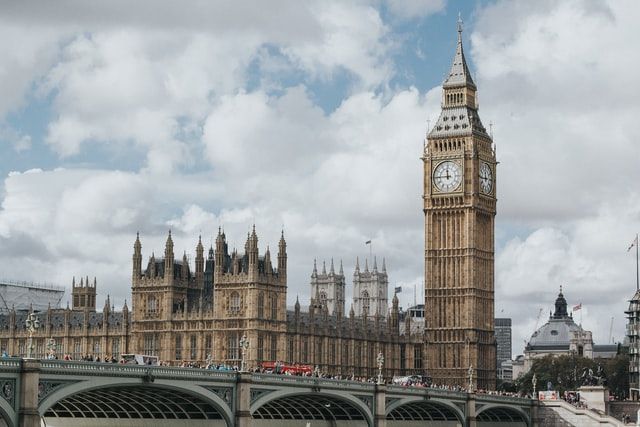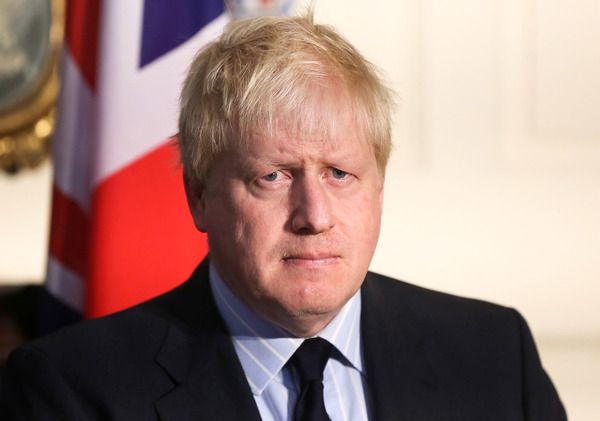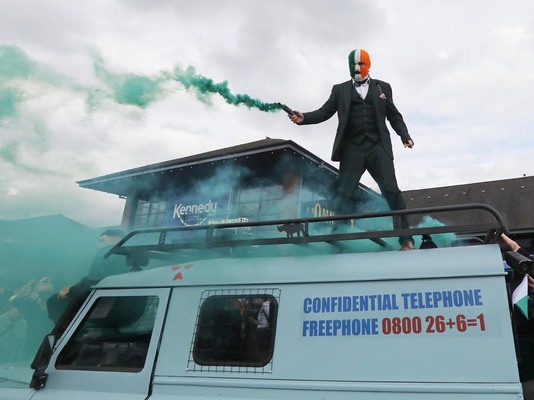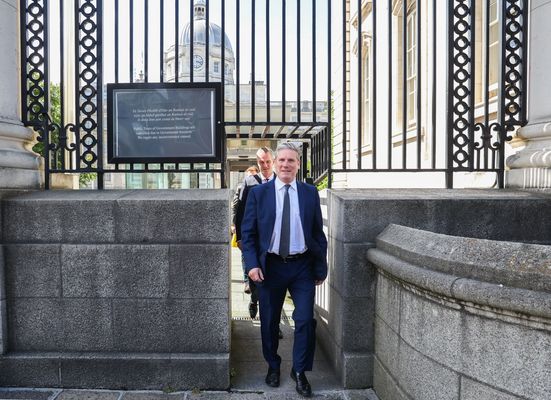Thanks to The S*n’s political correspondent, Natasha Clark, we now know what the key issues are in the election for the next occupant of 10 Downing Street. Issues, that is, for the micro-electorate of Tory MPs (stage one) and Tory party members (stage two) who will decide who gets to inherit that very expensive wallpaper (£840-a-roll) which keeps peeling off.
Speaking on Good Morning Ulster, Natasha said the discussion for Tory MPs was: “Are they going to cut tax? What are they going to do with Northern Ireland? What are they going to do with fuel duty?”
Not even “for NI”, or “about NI”. They could give it away? Somehow that’s unlikely to appear in the leadership manifestoes. More probably, the answer will depend on who the next prime minister takes advice from.
The newly-appointed Secretary of State for Northern Ireland, Shailesh Vara, may lean across the Cabinet table to advise that the North is part of Great Britain, so problem solved. That’s what he learned from ten months as a minister of state in the Northern Ireland Office in 2018 before resigning over May’s Withdrawal Agreement because it was not Brexity enough. Johnson lives on!
.@ShaileshVara : "It's important to remember that Northern Ireland is part of Great Britain by virtue of the principle of consent."
— Darran Marshall (@DarranMarshall) November 20, 2018
He was a Northern Ireland Office minister until last week. pic.twitter.com/cEMVJRCwRy
The last time political scientists surveyed the Tory party membership (five years ago), it was found that two-thirds of the 160,000 members were in favour of a no-deal Brexit. Who are these people? They are mostly men (71 per cent) and have an average age of 57. Over half of members live in the south of England, with one-third living in London and the South-East region. Only ten per cent live in Scotland and four per cent in Wales.
From more recent opinion polls around Brexit (YouGov 2019), we know that Tory party members are quite self-destructive when it comes to the union. They would gladly see Scotland leave as long as Brexit is done and would have no problem ditching the North of Ireland. They would even risk seeing the party self-destruct as long as Brexit was secured.
even if the DUP did not want to get involved as a party, Donaldson could have independently acted to express his disapproval of Johnson’s conduct and failure to uphold standards in public life. But he hasn’t.
Three years on, we are about to find out where they stand on the Protocol and just how out of line they are with the British electorate generally, now that a majority think it was wrong to leave the EU and only 38 per cent think it was right. Over the coming weeks we shall see what sort of priority the Protocol is for Tory members. And we shall see how much damage will be inflicted on us here through the increasingly fragile British economy, the lame government at Westminster, and the continuing DUP boycott of Stormont.
What policies will they come up with to deal with the eating and heating crisis of the coming winter? Are all the leadership contenders in climate change denial? None of the potential Tory leaders appear to show any understanding of the mess Britain is in.
Tory leadership candidates do live in fairyland - incredible lack of policy reality as they bid for support from a deranged selectorate and the Tory’s client press. Brexit legacy is just the start of incoming PM’s problems as cost of living crisis spirals https://t.co/6gCcdREfRN
— Will Hutton (@williamnhutton) July 10, 2022
It took an age for Tory MPs to wake up to the crisis of Johnson’s integrity. When they did, it took just 48 hours of resignations by ministers and others to force Johnson’s hand. There was a minor Trump moment when he looked for any excuse not to walk but this did not last more than a few hours.
Gideon Rachman: The line from Boris Johnson to Donald Trump, and then from Trump to other strongman leaders — such as Recep Tayyip Erdoğan, Narendra Modi, Xi Jinping and Vladimir Putin — is shorter than is often appreciated https://t.co/PdndjywAZz pic.twitter.com/Q5mYBIEEFA
— FT Opinion (@ftopinion) July 11, 2022
Among the downfall, “with-a-heavy-heart” resigners were five trade envoys. These are not paid posts but they do attract expenses which have come under some criticism. Trade envoys are appointed by the prime minister. Gone are the days when there was just one special representative for international trade and investment, a post notoriously occupied by “Airmiles Andy” (Prince Andrew) who clocked up well over a million pounds in travel and other expenses before resigning in 2011 after his friendship with Jeffrey Epstein was exposed.
WANTED - TORY LEADER: The British Houses of Parliament. Pic Unsplash.com A Perry
During his brief time as Prime Minister, Johnson tripled the number of trade envoys, taking the total to 38 before the latest resignations. In August 2021, he appointed, amongst others, Jeffrey Donaldson (Cameroon), Kate Hoey (Ghana) and Conor Burns (Canada). Donaldson was already a trade envoy for Egypt. Leaving aside arch-loyalist Conor Burns, the question is, why didn’t Donaldson and/or Hoey resign and disassociate themselves from Johnson’s patronage as others have done?
After so-called Partygate and publication of the Sue Gray report, Hoey said in the House of Lords: “There will be some people who will never give up criticising the Prime Minister because they do not like the fact that he took us out of the European Union... the apology has happened—let us move on." A matter of four weeks later, Johnson’s lies over the sexual assaults of Chris Pincher MP did not push Hoey to resign.
Partygate report in brief:
— Kevin Maguire (@Kevin_Maguire) May 25, 2022
Vomiting
Excessive boozing
Fisticuffs
Partying until 4.35am(before Prince Philip's funeral)
Broken swing
Secret Santa
Cleaners & security staff bullied
Red wine on walls
Karaoke
Sitting on laps
"We seem to have got away with it" - Martin Reynolds
What about Donaldson? Throughout the crisis over Johnson’s leadership, Donaldson held the position that the DUP had no public view on the issues because the leadership of the Tory party was a matter for members of that party. The difficulty with this is that Donaldson personally holds a post that Johnson created and appointed him to. So, even if the DUP did not want to get involved as a party, Donaldson could have independently acted to express his disapproval of Johnson’s conduct and failure to uphold standards in public life. But he hasn’t. In James O’Brien’s words, “We don’t live in that country any more”.
'We do not live in that country anymore.'
— LBC (@LBC) May 24, 2022
James O'Brien spends five minutes listing – from memory – some of the misconduct that would have prompted resignations under any other Prime Minister.@mrjamesob pic.twitter.com/tfCM8Bx2T6
Following Johnson’s decision to stand down, there was some speculation that “controversial bills” would not progress until a new leader was elected. But willingness to progress the Protocol Bill (which effectively overrides the Protocol) will be one of the tests for Tory leadership candidates as the party continues its internal fight over Brexit. In any event, the Bill’s stages are still being timetabled in the parliamentary schedule.
So where does that leave us? With no Assembly and Executive to address a multitude of problems until who knows when. Watching and waiting until September for the Tories to find a new leader, and then what? With Irish-British relations at a low point and the prospect of a British-EU trade war.
Is this all we’re good for, to be spectators at a carnival of inaction? Bring on the alternatives!








